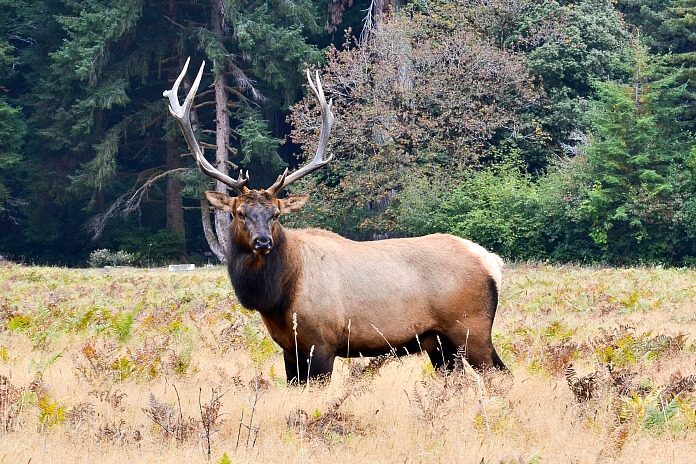
Several times already this year, an Oregon State Police trooper has arrived at the scene of a vehicle collision with a deer or elk and the driver has asked if the animal can be salvaged and taken home. Oregon Department of Fish & Wildlife (ODFW) offices are also getting such requests.
The answer is no, not yet. New rules allowing drivers to lawfully salvage roadstruck deer and elk don’t take effect until Jan. 1, 2019.

Calls and questions about the new roadkill law are increasing because wildlife-vehicle collisions peak this time of year. According to Oregon Department of Transportation statistics, there were 1,160 such collisions in November of last year and 1,052 in October, compared to just 377 in December 2016.
That’s because deer and elk are on the move this time of year, due to their annual migrations that see them crossing major Oregon highways to get from higher elevation summer habitats to lower elevation winter habitats. Deer are also on the move due to their annual “rut” or breeding season which lasts from late October until mid-to-late November. Fewer daylight hours also contribute to higher incidences of collisions.
“Be extra careful driving this time of year, especially where there is a lot of vegetation next to a road, or when going around curves as wildlife near the road might not be visible,” said Oregon State Police Captain Bill Fugate. “Drivers who see an animal near the roadway should try to reduce their speed and be aware that other animals will often be crossing, too. Finally, if you can, stay in your lane because serious crashes involving wildlife are often due to drivers swerving to avoid hitting an animal.”
After any wildlife-vehicle collision, ODFW, OSP or ODOT attempt to salvage animals and will donate edible meat to a local food bank when possible.
With the passage of SB 372 by the 2017 Oregon State Legislature, drivers will also be able to salvage roadkilled deer and elk for the meat beginning Jan. 1, 2019. The Legislature gave ODFW time to develop a safe, responsible salvage program. As with all regulations, ODFW staff will write draft rules and present them to the Fish and Wildlife Commission for public comment and consideration before adoption.
“ODFW will work to write rules that make getting a permit to legitimately salvage a roadstruck deer or elk as simple as possible, but that also discourage poaching,” says Doug Cottam, ODFW Wildlife Division Administrator. Salvaging roadkill has been unlawful to discourage people from deliberately hitting a game animal with their vehicle in order to keep the meat or antlers, or from poaching an animal and covering it up by claiming it was roadkilled.
“OSP will continue to aggressively enforce wildlife laws once this new regulation takes effect on Jan. 1, 2019,” added OSP’s Fugate.
Until 2019, current Oregon wildlife regulations remain in place and state “No person shall possess or transport any game mammal or part thereof, which has been illegally killed, found or killed for humane reasons, except shed antlers, unless they have notified and received permission from personnel of the Oregon State Police or ODFW prior to transporting.” Even licensed hunters may not pick up roadkilled deer and elk during legal hunting seasons.
For more information about roadkill and what to do if your car hits a wild animal, visit ODFW’s webpage.










